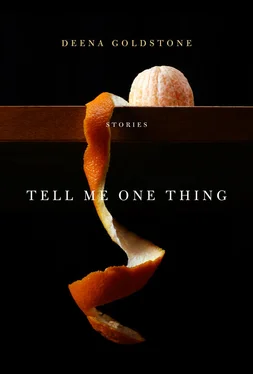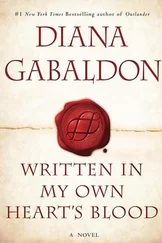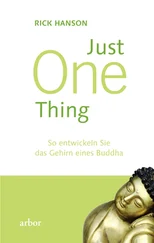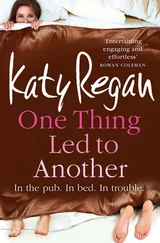Here was a man whose life had proceeded easily from precocious child to adored son to honored student to responsible husband. Only now, as Richard struggles to finish his dissertation, as he competes with scientists more than his equal, as he finds that teaching undergraduates at the University of California at Riverside isn’t to his liking, as his life stalls around him, only now has Richard ever had to examine his circumstances. And he’s not doing a good job of it, introspection being a skill he never acquired.
At the beginning, Lucia thought Richard would light the way. It was his rock-solid belief in his own competence that drew her to him. In those early days, she believed he knew how to get the better of life.
“Most people don’t know how to set the right goals,” he told her in the midst of a noisy Oberlin party the night they met. “That’s their first problem.”
Lucia’s immediate thought wasn’t that she didn’t have the right goals, but that she had none . She would graduate in June, and then what? The thought terrified her. Would she end up back at her parents’ house in Columbus, Ohio, sleeping in her childhood bedroom, eating Sunday dinner in her grandparents’ overstuffed dining room, walking the same neighborhood streets, seeing the same tired faces as she had every day of her life until she left for Oberlin? She saw no other alternative. She was studying music. How would that translate into a life that could sustain her? She had no idea, but she knew that if she didn’t come up with a plan soon, it would be as if her four years at college had never happened.
Richard and Lucia stood in the tiny kitchen of a classmate’s apartment, the crowded party going on around them, empty beer bottles spilling out of black garbage bags and continuing on across every available surface — countertop, stovetop, kitchen sink. The floor was crunchy with broken pretzels and ground-up potato chips, the air thick with the aroma of pot, and the room sweltering from a late September heat wave. Not a lick of a breeze came through the open back door.
Richard seemed to take no notice of any of it. A deep green bottle of Rolling Rock in hand, he leaned his lanky body against the old lumbering and wheezing fridge, his blue eyes intense with concentration as he spoke to Lucia. He made her feel as if they were alone and she was flattered, rapt. Richard Weiss was mesmerizing in his certainty.
“And most people refuse to work hard, really hard. They don’t understand that’s what you have to do if you want something badly enough. You do all that …” And here he paused and shrugged, as if to say the rest was self-evident. His thin face, so somber till then, broke into an irresistible grin, and suddenly he was boyish and appealing. When he said, “My life is the perfect example,” it didn’t occur to Lucia to see it as bragging.
Her own life had been a series of accidents and unexpected turns, so that Lucia never trusted the outcome of any enterprise and certainly didn’t trust her ability to make things happen.
Named after her paternal grandmother, Lucia grew up the only child of grateful parents. Her father, Lino, had emigrated from Calabria, Italy, as a young man, lured by the stories of his relatives who had come before him, and settled in Columbus. Two uncles had opened a shoemaker’s shop. At first they did only the most commonplace repair — resoling shoes, replacing broken heels, stretching insteps for ladies who had bought a shoe several sizes too small. But gradually they began to design and make shoes. The uncles were friendly. Their customers spoke to them about their difficulty in finding a comfortable shoe. People with tricky feet were grateful to pay a little more for the luxury of walking pain free. Their business prospered.
Because neither uncle had married, they gratefully taught their nephew the trade. Thirty-seven years later, as Lucia packed her duffel bags in Riverside, California, Lino continued to greet customers at the counter of Pascoli Brothers Shoes in Columbus, the uncles long dead, the shop now his.
Never once can Lucia remember her father complaining. Did he like what he did for a living? The question, itself, was outside his range of inquiry. He was grateful to have had uncles to help him, grateful to have made enough money to provide for his wife and daughter, grateful he has work still.
Lucia named her daughter after her own mother, Margaret, who married Lino Pascoli, this courtly Italian man, and never stopped loving him. Margaret’s Irish-Catholic parents weren’t pleased. But Lino was Catholic. They could all go to the same church. They believed in the same God. That’s all that mattered, Margaret told them, and, as the years went on, they agreed.
Her hopeful, sweet mother, who saw only the best in people and would do anything not to make waves, taught Lucia to be thankful and good and to live without anyone noticing. She grew up feeling doted on and pretty much invisible outside her home. She was always the child who gave the nuns no trouble in school, who sat with her hands folded and her attention fixed on her teacher. She was the student whose grades were good and whose love of music, for her violin, gave her a path to college. To Lucia’s astonishment, the Oberlin Conservatory of Music welcomed her with a scholarship. Her parents were equally flabbergasted. Yes, Lucia liked to play the violin. Yes, the music that poured out of it was sweet and often made her mother weep, but a scholarship? College, when neither of them had ever gone? This scholarship, this chance to go to college, it was a gift. And Lucia thought of it that way as well. Not as something she’d earned. Not as the logical conclusion to all the years of practice and praise. A gift, an unexpected turn in her life.
And now far away from home, in California, if she doesn’t have the words to tell Richard why she’s leaving, she certainly can’t begin to explain this decision to her parents. In her family, you stayed married. In her family, you didn’t inform your husband that you were leaving with a note propped up on the kitchen table, a note that explained pretty much nothing and that explicitly didn’t give him any address where he could find you.
AS LUCIA’S CAR SPEEDS WEST ON the 60 Freeway, away from hot, steamy Riverside, she concentrates on her driving. Even though Richard has no idea that they are leaving, it somehow seems urgent to get as far away from the campus as quickly as possible. When the 60 merges with the Santa Monica Freeway, the 10 West, around Boyle Heights, Lucia finally allows herself to draw a breath. This freeway will take them to the ocean. They are on their way. She glances over to see Maggie looking out the passenger-side window, humming quietly to herself.
“Do you remember Bernadette?”
Maggie nods. She remembers that Bernadette laughs a lot and moves around quickly and isn’t a restful kind of person. But she also remembers that when Bernadette would come for dinner, she would always bring a present for her. Once she brought Maggie a goldfish in a plump plastic bag tied with a striped ribbon. Another time it was a book about the animals that live at the North Pole. But the best present was a soft doll with long, black braids who was wearing a honey-colored dress embroidered with beads. She had tiny moccasins on her feet. Bernadette explained she was an Indian girl from the Lakota tribe. Later her mommy said that Bernadette taught anthropology classes where her daddy worked, sometimes about the Lakota, sometimes about other native people.
“Well …” Lucia continues as the 10 Freeway loops around the shiny, mirrored skyscrapers of downtown L.A., “Bernadette fell in love with a man named Max and she moved to his house in a part of Santa Monica called Ocean Park. She said we could live in their guesthouse for a while, so that’s where we’re going. We’re going to be their guests.”
Читать дальше












